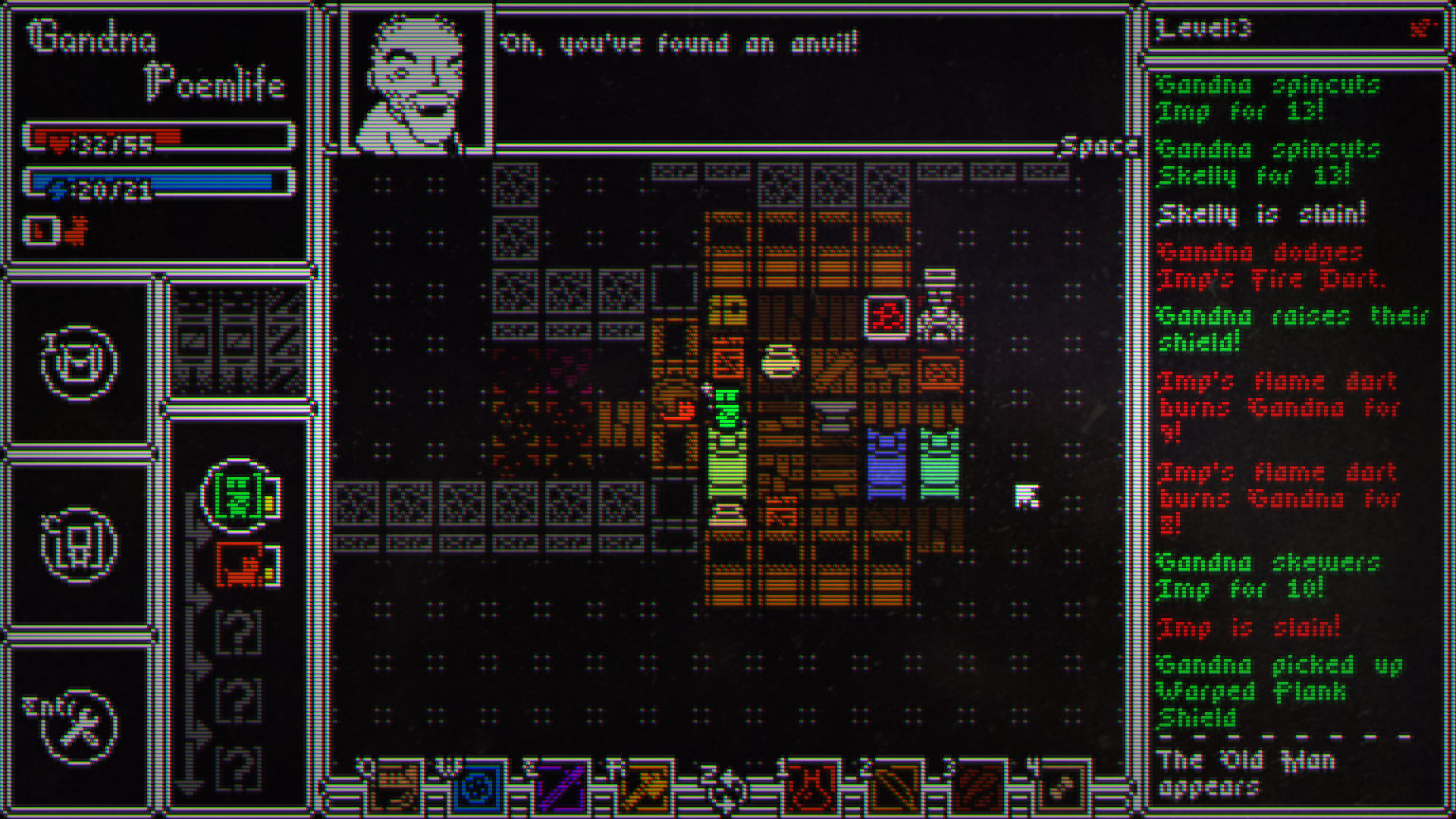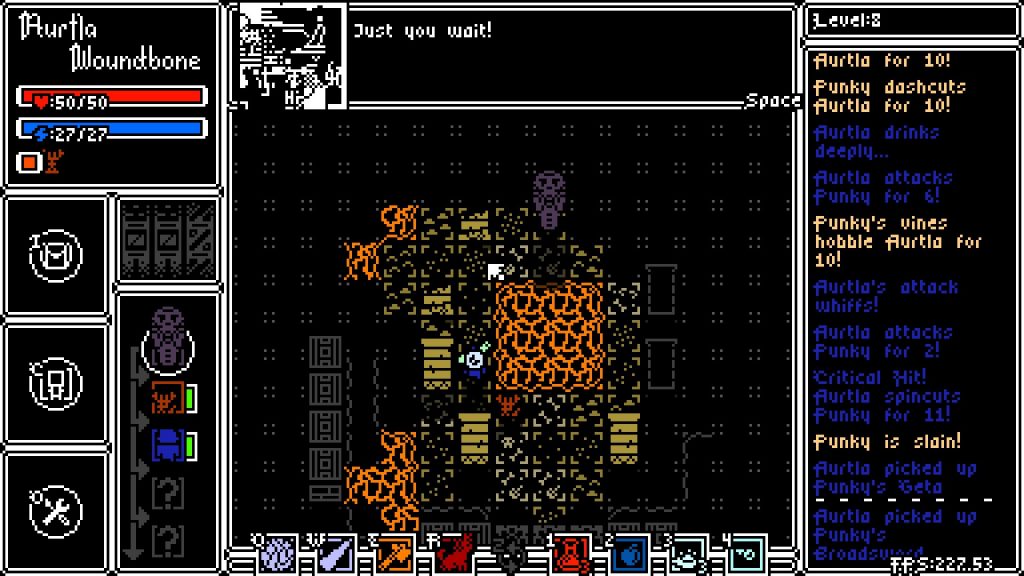Dungeon crawlers hack away the RPG formula to its harshest edges. There are no eclectic quest-givers confidently slouching in the corner of the tavern. No lively chats with party members before setting out into the wilderness. No, all that is left is skulking isolation and the doubts beleaguering each tile beyond your myopic vision, and of course, perma-death. SuperTry Studios prods this genre, borrowing minimalist elements from games like Undertale, and extrapolates them into an enjoyable and fun pixelated roguelike, Haque.
Can You Haque It?
Haque is about the descent. The descent into darkness and into mystery. Into the same dungeon—varied by procedural generation—featuring the same ostensibly generic old man narrator. Player descend the layers of narrative within the meta-narrative. Start the game, choose a new generated character from a rotating mix of races, classes, equipment, and loyal familiars. Then explore a series of levels and every so often kill humorously aloof bosses. Over the course of this character’s life, make note of their successes, of near-failures, and (inevitably for most of them) actual failures. These represent the beats of each individual’s narrative. And within these stretches learn more about the overarching meta-narrative, and perhaps store items in the pre-boss chest for future runs.
This game shines as a tile-based roguelike. As you conquer level after level, the sense of isolation rises with the difficulty. The simulated scan lines succeed in setting up a retro feel, and also introducing a slight dissonance between you and the world. Haque‘s carefree guitar soundtrack from the early levels transmutes into alien synths as you progress. Each action, from charging abilities to simply swapping equipment, takes time. Time that you must consider in each engagement. Every enemy has their own speed stat and charge times with which the player competes.
Tile By Tile
For example, one level, a dark library, features long rooms littered with bookshelves. You take a step into a new room and several monsters appear in your periphery, only to move away. Your familiar spots something you cannot see. As you investigate, you are attacked by overdressed blobs and disappearing ninjas. Now you must anticipate their movements in the confined room, and each step is agonizing. Keep your wits sharpened, you and your familiar’s health up, and your tactics rational.
The enemy is not intrinsic or extrinsic. When health is low or story beats reject you, the UI glitches beyond recognition—the fabric of the game itself is intentionally tenuous. Therefore, perma-death is not just a gimmick to attract the masochistic. It is both burden and mantle. It is the pixels and underlying code conniving against you, composing a feedback loop of rhythmic loneliness. Yes, you have your trusted familiar until it is slain and meekly follows you as a wispy blue ghost. All of this snowballs and the tension grows, culminating in (at least) one ending that is surprising and tense.
Also the game will have penguins during the winter months. So, there is always that to look forward to. Haque is available on Steam and SuperTry Studios’s Itch.io page.





